Know Your Lore: 2016 Lore in review — Overwatch
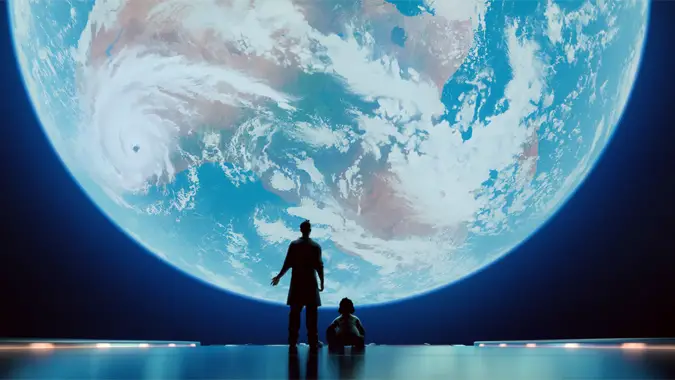
Ordinarily, I keep these year-end reviews dedicated pretty exclusively to World of Warcraft. But 2016 saw the release of Blizzard’s newest title, Overwatch — a new IP with new characters and story. With Overwatch, Blizzard has done something a little different. They’ve taken a genre of gameplay that isn’t typically heavy on story, and given it one.
And the reaction to this has been nothing short of astonishing. People are super invested in these characters. It shouldn’t be too much of a surprise — Blizzard has a knack for creating appealing characters, after all. But from a multiplayer FPS title? It was unexpected, it was new, and weirdly enough, it works.
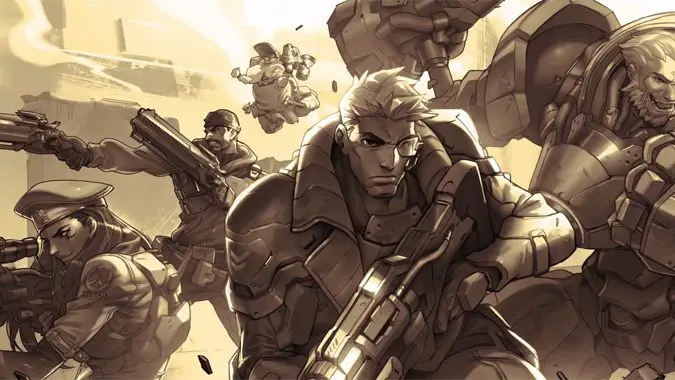
Game vs. story
What makes Overwatch so very different from Blizzard’s other lore-heavy titles is the way that story is approached. Story and gameplay are completely divorced from each other. You aren’t playing a story campaign when you sit down for a round of Overwatch matches. Characters that are clearly defined as enemies can still play side by side on teams. There is no single-player campaign mode, and the game isn’t an RPG in the slightest.
Essentially, Overwatch as an IP is its own universe, and things are definitely happening in that universe. These are the story elements we see play out in out-of-game media. Cinematics, comics, even fake news releases all add to this overall story. But that story is never really reflected in game. Instead, Overwatch the game takes these compelling heroes and hands them to us for some free for all gameplay.
It’s a little like when you’re a kid reading comic books or watching cartoons, and getting the action figures to play with. Sure, the figures you’re playing with are part of that whole big story from the comics or cartoon, but you don’t necessarily care about that while you’re playing. When you’re playing, you’re making up your own narrative. When you’re playing Overwatch, that made up narrative is “Hey, let’s beat the stuffing out of each other — it’ll be fun!”
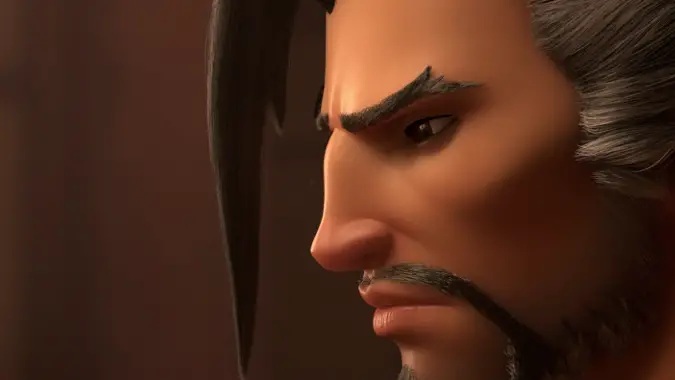
Origins and heroes
Overwatch features 23 different heroes, each with their own little chunk of story in their hero descriptions. Each hero’s introduction is different — whether it’s the series of news releases leading to the reveal of Soldier: 76, or the massive, ponderous ARG crawl that led to Sombra’s debut. Every hero’s story contributes just a little more to the overall narrative behind the IP. The overall narrative is pretty good — a giant global threat, a group of pretty awesome superheroes that shut it down, and then the mystery of the group’s downfall. Top it all off with the reformation of that team, and you’ve got some pretty compelling elements to work with.
To expand the story of these heroes even further, we’ve gotten a series of comics over the last year, each focusing on a different hero or story element. Some comics may feel less consequential than others. Some just expand on the origin stories presented in those hero descriptions. But they all have connections to each other, they’re all pointing towards the same tale.
And on top of the comics, we’ve got the cinematic shorts. Blizzard has long been doing some amazing work with cinematics in their games. But this is the first time we’ve really had short animated cartoons that aren’t actually involved in the game itself at all. They stand on their own, either as more introduction, or furthering that narrative that’s slowly taking shape between all of these elements.
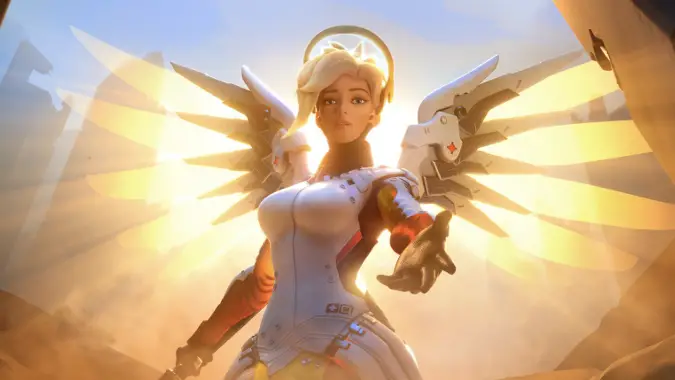
Why Overwatch works
It’s hard to put a finger on why the game, and the lore behind it, is so addicting. I think the best answer I can come up with is that Overwatch isn’t a traditional kind of story. The lore is being presented not as a cohesive unit, but as a series of puzzle pieces. It’s up to us to put the pieces together. We don’t know what the puzzle is going to look like when it’s done. We don’t have a picture on the box to work with, we’re working blind.
But that’s what makes it so fun. Some of these puzzles are referenced in-game. Every now and again you’ll find a piece of scenery pointing to yet another hero we haven’t seen before. Or you’ll find a little vignette on a map that reflects something that’s happening in the outside narrative as it progresses. These aren’t heavy-handed references. They’re subtle, you have to be looking for them to find them.
What this leaves us with is a game that people who really just don’t care about lore can easily enjoy. Players that just want to mess around with the virtual action figures and ignore all the story can easily do so, because they aren’t really related. And for those that do care about lore, Overwatch quietly gives us a riddle to unravel. It’s been nearly a year since Overwatch’s debut, and we haven’t gotten tired of that riddle yet.
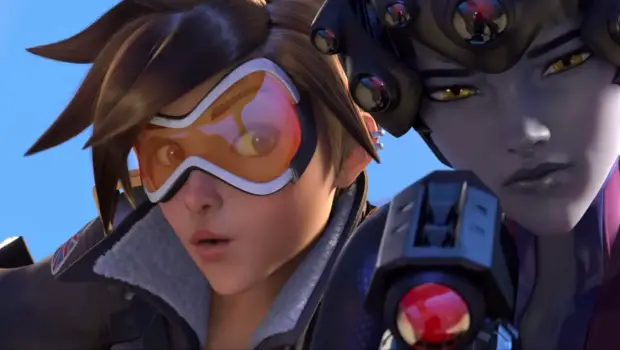
What needs work
This divergent method of storytelling is pretty great for people that just want to play the game without thinking about the narrative. On the other hand, it falls short in one really important aspect. Unfortunately, there are plenty of people out there that aren’t interested in playing a shooter title. The problem is that they are interested in this strange little tale being told through outside media. So they happily watch the animated shorts, read the comics, and absorb as much as they can — all without playing the actual game.
What this leaves is a pretty substantial group of people interested in a game that doesn’t actually exist. If Overwatch had a single-player story campaign, they’d probably be playing it. If a story-heavy RPG in the same universe were released, they’d play it. They love the characters and the story being told, but they just aren’t interested in playing with the action figures.
This isn’t really a problem for the audience, who will continue to draw, write, and talk about every cool character from the franchise. It is, however, a problem for Blizzard — because those people are potential players that have nothing they are interested in playing, and therefore aren’t really spending any money on the franchise. The cancellation of Overwatch: First Strike was incredibly disappointing to that section of the audience. They were looking forward to seeing more of Overwatch’s compelling story. Now they have to wait for another tantalizing hint to materialize.
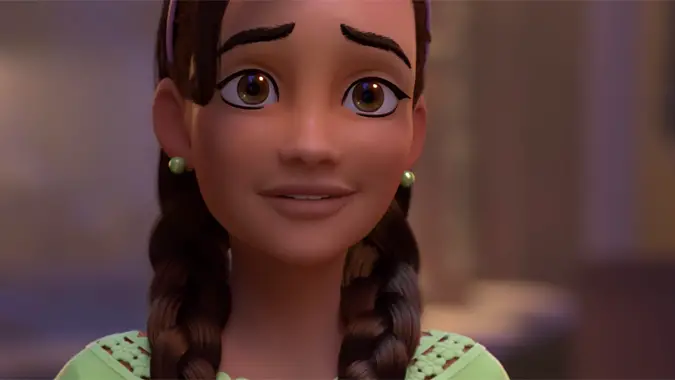
Points to consider
It isn’t the worst problem in the world to have. Overwatch has been ridiculously successful just as it stands on its own. It’s the combination of fast-paced, action-packed gameplay and those bright, frenetic little bursts of story that make it so compelling. From the moment Blizzard released that first cinematic trailer for Overwatch, people were hooked. We didn’t know the first thing about Tracer, Winston, Widowmaker or Reaper — but man, we really wanted to know more. Immediately.
So here’s what I’m interested in seeing in 2017: Where does Blizzard go from here? They have in their hands a veritable goldmine of merchandising opportunities, and an audience that’s dying to hear more. Overwatch comics are great, but graphic novels would be even better — or even written novels. Or more animated shorts. Or a full-blown animated series, or how about a movie? The possibilities are endless, and they are staggering.
Overwatch was at or near the top of almost everyone’s “best of 2016” compilations for a reason. It’s a brilliant game, it’s incredibly fun to play, and it never takes itself too seriously. I have no doubt that as far as the game goes, we’ll see a lot more of that fun as the year goes on. I’m pretty sure we’ll see plenty more of that story, too, and the characters we’ve so quickly fallen in love with. We’ll have to wait and see if they’re going to continue the slow dribble of story-related content in 2017, or push the envelope and deliver something far more substantial, story-wise, in the year to come.
Either way, can we get some real-life action figures thrown in with the delightful digital versions they’ve graciously given us to play with? I’d like a Hanzo and Genji for my desk, please.
Please consider supporting our Patreon!
Join the Discussion
Blizzard Watch is a safe space for all readers. By leaving comments on this site you agree to follow our commenting and community guidelines.
 @Shadesogrey
@Shadesogrey



